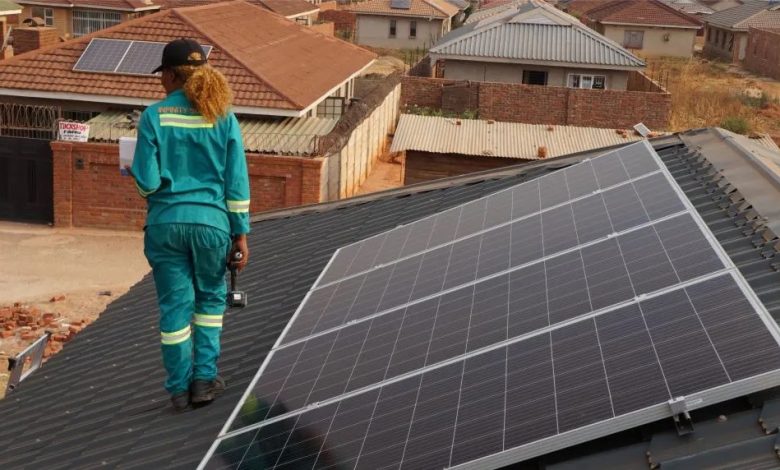Government of Zimbabwe’s Driven Revolution: Leap Towards Solar Power

In a bid to harness the sun’s energy and steer Zimbabwe towards a sustainable future, the government of Zimbabwe has been instrumental in supporting solar power initiatives. This support, underpinned by a series of incentives and policies, has not only made solar power more accessible but also laid the groundwork for a renewable energy future. Private solar power in Zimbabwe is growing at impressive speed thereby reducing reliance on the national grid.
The Government of Zimbabwe’s Support of Solar
Furthermore, the government has been at the forefront of promoting solar power in Zimbabwe. Recognising its potential to provide a reliable and affordable source of energy. A significant step in this direction was the announcement of incentives for 1 GW of Independent Power Producer (IPP) solar projects. This move aims to guarantee viable power tariffs to 27 solar projects by IPPs. Also, it has a total investment of around $1 billion 2.
Incentives and Policies by the Government of Zimbabwe
To expedite the commissioning of these solar IPP installations, the government of Zimbabwe implemented a Government Implementation Agreement (GIA). This agreement included a project development support agreement as well as a power purchase agreement. It also has an agreement with the Reserve Bank of Zimbabwe. This is for guaranteed payments of dividends and foreign loan repayments to external investors and lenders 2.
Achieving Goals and Challenges
Moreover, the government of Zimbabwe’s support of solar power is part of the nation’s broader strategy to achieve upper middle-income status by 2030. Diversity, reliability, and affordability in the electricity mix is a key factor in achieving this goal. However, the country is facing challenges, including volatile currency and unattractive tariffs, which have kept IPP investment at bay 2. With the recent introduction of the new gold-based currency, one can only hope for the best.
Looking Ahead
Despite these challenges, the government of Zimbabwe’s commitment to solar power is unwavering. The incentives announced are seen as “game changers” for Zimbabwe’s power sector, with the potential to significantly boost the country’s renewable energy capacity 2.
Conclusion
Finally, the government support of solar power in Zimbabwe initiatives is a testament to its commitment to sustainable development and energy independence. Through incentives, policies, and a coordinated approach, Zimbabwe is making strides towards a future powered by the sun. Additionally, as the country continues to embrace solar power, it sets an example for other nations grappling with similar challenges. The journey towards a renewable energy future is underway. With the government’s support, Zimbabwe is well on its way to achieving its sustainability goals.





